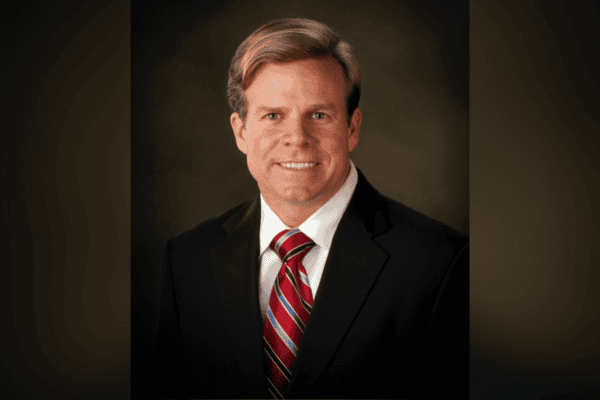Vacation rentals legislation carried by Sen. DiCeglie advances through Senate committees

TALLAHASSEE, Fla. – A comprehensive bill aimed at revising the regulation of vacation rentals passed through a second committee stop on Thursday.
Sen. Nick DiCeglie, R-St. Petersburg, is carrying SB 280. Rep. Philip Griffitts, R-Panama City Beach, is carrying a similar bill in the House.
The bill passed through the Senate Fiscal Policy Committee by a vote of 12-5. It previously passed through the Senate Regulated Industries Committee by a vote of 4-0.
DiCeglie said he believes the bill is going to “create predictability at the local level for local governments, for the residents who live in the community, for property owners who want to exercise their property rights, for the platforms.”
“I said this multiple times last year when I ran this bill – that I was extremely concerned that some of local governments and their ordinances were specifically advanced and put on their books to prevent these these properties from operating as vacation rentals altogether,” DiCeglie said.
He said there has been “somewhat of a weaponization of government to prevent these properties from operating as vacation rentals” and that he believes the bill will “address those concerns.”
Current law does not allow local laws, ordinances, or regulations that prohibit vacation rentals or to regulate the duration or frequency of the rental of vacation rentals.
A vacation rental is a unit in a condominium or cooperative, or a single, two, three, or four family house that is rented to guests more than three times a year for periods of less than 30 days or one calendar month, whichever is shorter, or held out as regularly rented to guests, according to the bill’s analysis.
During a committee meeting Thursday, DiCeglie gave a summary of the comprehensive bill.
He said the bill requires advertising platforms to collect and remit sales tax and tourist development taxes.
It also authorizes the Department of Revenue to adopt rules, including emergency rules to implement the tax reporting requirements for advertising platforms.
He said the bill “preserves the current prohibition against local laws, ordinances or regulations that prohibit vacation rentals or regulate the duration or frequency of vacation rentals.”
The bill permits “grandfathered” local laws, ordinances, or regulations adopted on or before June
1, 2011, to be amended to be less restrictive or to comply with local registration requirements. Additionally, a local government that had such a “grandfathered” regulation in effect on June 1, 2011, is authorized by the bill to adopt a new, less restrictive ordinance.
Under the bill, a local government may require vacation rentals to be registered.
The bill authorizes local governments to revoke or refuse to renew a registration if a vacation rental registration has been suspended three times, among other reasons.
An approved amendment to the bill would also revise a fee for local registration from $150 per unit to a “reasonable fee” per unit.
DiCeglie said lawmakers wanted to “make sure that local governments could essentially recoup those costs that come along with enforcement of vacation rentals.”
He said he doesn’t want to see local governments “charging $10,000 for a registration fee, when in reality, they’re ultimately trying to prevent vacation rentals from operating at all.”
The amendment revises the requirement to state the maximum occupancy and a vacation rental application to include compliance with the Florida Fire Prevention code.
DiCeglie noted he has been “concerned” about occupancy.
“I think that when we talk about the consistent issues with vacation rentals, and the ‘party houses’ that all of us have heard about, there is a direct correlation to occupancy,” DiCeglie said.
However, DiCeglie said he wants to “continue having those conversations.”
During public comment, one speaker from Jacksonville Beach opposed the bill, and said it “would erode the prosperity of over five million Florida residents who bought their homes to live in a residential neighborhood with homestead exemption.”
“They did not want to live in a commercial zone next to mini hotels,” the speaker said.
In an interview with Florida’s Voice this week, DiCeglie said the bill is a “top priority” of Senate President Kathleen Passidomo, R-Naples.
“We’re simply trying to set a uniform set of regulations for vacation rentals,” DiCeglie said.
He said it is important “because there were many municipalities that are, what I like to describe is – pushing that envelope and in many ways going against what was intended in the statutes, you know, going back to 2014.”
DiCeglie said he understands that “folks are frustrated that their communities are changing,” but “at end of the day, we cannot put that genie back in the bottle.”
“We have a lot of good property owners who manage these properties in a responsible way. They follow all the local ordinances and those ordinances that we hear a lot is parking, noise and trash. This legislation is not going to interfere with any of those things,” he said.
“I want to make sure that when this product gets off the senate floor that it’s going to be a really good, solid piece of legislation,” DiCeglie said.



